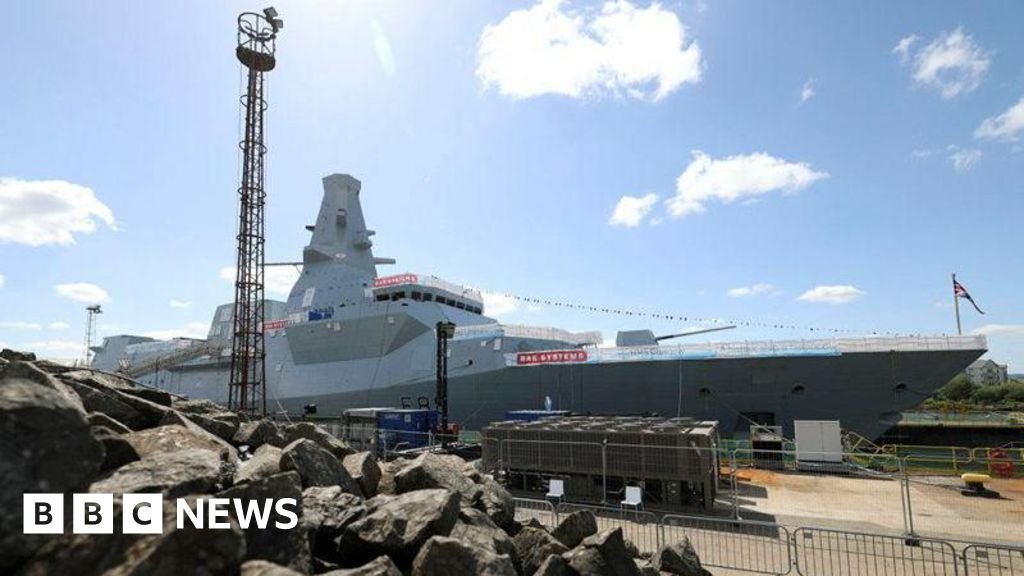Business
IBM GenAI Business Soars to $7.5 Billion, Drives Growth in Mainframes, Consulting

IBM’s explosive GenAI business has reached an annualized run rate of $7.5 billion just 18 months after its launch and is revitalizing customer demand across much of IBM’s vast portfolio, including mainframes, consulting, and software.
Under CEO Arvind Krishna, the 114-year-old icon has made AI and hybrid cloud the cores of IBM’s resurgent business, with last week’s Q2 earnings results revealing the companywide impact the AI business is having.
That impressive reorientation around one of the hottest new technologies the world has ever seen also underscores the remarkably broad and deep strategic transformation Krishna has led, which has flipped the script from the hazy old days of “account control” to expanding the TAM via aggressive and wide-ranging partnerships.
During the Q2 earnings call last week, one analyst asked Krishna to discuss how the generation of a $7.5-billion AI business in just 18 months has affected customer demand for IBM’s “non-AI” products and services. I think that while that is, today, a great question, it is also ironically one that will rapidly become irrelevant because in an extremely short period of time, IBM will no longer have any “non-AI” products and services.
In addition, the analyst asked Krishna to describe if and how customers are “prioritizing AI over non-AI” and whether AI is driving “cannibalization” within customer budgets or if the AI spending boom is “incremental” to customers’ more-traditional tech spending.
Addressing IBM’s extensive tech stack relative to AI, Krishna said, “If you look at it first from the semiconductors and the infrastructure level, I would tell you that this is completely incremental.”
Similarly, Krishna said, the increased revenue IBM is seeing for its “enabling software layers” is “purely incremental” as well: “There is no cannibalization there with alternate forms of technology,” he said.
But in the realm of IBM Consulting, which in Q2 contributed 31.2% ($5.3 billion) to IBM’s total revenue of $17 billion and is a key element in Krishna’s strategy for driving highly differentiated value for clients, cannibalization begins to rear its head.
“I will tell you that the cannibalization is gonna come from the fourth part,” Krishna said of his multi-part answer. “People are looking at their own internal labor expenses and people are looking at their third-party labor expenses, and they’re looking to decrease those to make room for what they’re doing around software,” he said.
“When you look at AI coming into software products — in our case, in Apptio, in Hashicorp, and in Turbonomic — it actually makes those products better and more able to compete better against others. So it’s not a cannibalization because that would apply to ourselves,” Krishna said.
But it’s a different dynamic, he said, with consulting.
“If I look at consulting, yes, there is a big piece of the AI book of business that is coming because people are directing their dollars towards that kind of consulting as opposed to alternate forms of consulting. And that is why it’s really important to be focused on what we call transformative projects, which includes AI, but also includes some of our partners, be it the cloud partners or SAP or Oracle or Palo Alto, etc.
“Because while that kind of project is far more robust and less likely to be cannibalized, some other parts of customer application development do tend to get cannibalized towards AI.”

AI Agent & Copilot Summit is an AI-first event to define opportunities, impact, and outcomes with Microsoft Copilot and agents. Building on its 2025 success, the 2026 event takes place March 17-19 in San Diego. Get more details.
Strange Bedfellows: AI and System Z
Krishna also spoke about the impact AI is having on IBM’s mainframe business.
“The watsonx Code Assistant for Z helps people modernize their mainframe environment helps you understand and if you want translate your Cobol code into Java, is really taking off and has got very wide adoption,” Krishna said “We thought people would use it to just modernize Kubernetes Java, but actually in the vast majority of the cases, people are also using it to understand the tens of millions of lines of code they already have and then decide what makes sense to modernize versus what makes sense to keep now that you can document it and know what it does.
“The second one that is very exciting that we’re bringing out in this third quarter is a watsonx assistant for Z that helps you have an AI administrator that manages your mainframe environment in addition to the people you have who manage it.
“And these are, I think, somewhat unique to us,” Krishna said.
Final Thought
It would be interesting to see how many shiny new AI startups have built up $7.5-billion books of business in just 18 months as IBM has done. I suspect there are some, but surely not very many —less than five, I would bet.
Yet here we have a 114-years-young company not only creating a hypergrowth AI business but also one that makes its entire portfolio stronger and thereby aligns itself more tightly with customers’ priorities here in the AI Revolution.
Hats off to Krishna and company for a great Q2 and for having the courage to create its own unique and high-value future.
Business
Start Your AI Agency Launches 90-Day Global AI Training Program to Build Lucrative AI Service Businesses
Start Your AI Agency, under the leadership of CEO Greg Squibbs, has announced the 90-Day global AI training program that enables individuals to build lucrative, location-independent businesses by using artificial intelligence.
Dubai, United Arab Emirates–(Newsfile Corp. – August 31, 2025) – Start Your AI Agency has launched a 90-Day global AI training program to build lucrative AI service businesses. The company’s core offering is a free training program that introduces the proprietary AI Layering Strategy – a system inspired by proven practices from leading global tech innovators. This model allows entrepreneurs to streamline their outreach, automate service delivery, and operate businesses 24/7 from anywhere in the world without the need for complex software or large teams.
CEO Greg Squibbs
To view an enhanced version of this graphic, please visit:
https://images.newsfilecorp.com/files/8703/262414_87e4e1ac64487862_001full.jpg
For digital entrepreneurs looking to launch and scale AI-powered service businesses, Start Your AI Agency 90-Day training program focuses on actionable steps and replicable systems that are accessible to them with no prior experience in AI or coding. By simplifying advanced AI technologies and integrating them into everyday business operations, the program helps to bridge the gap between innovation and execution.
The program supports a wide range of professionals, including freelancers, consultants, and business owners, who are seeking to modernize their services using AI.
Greg Squibbs, a long-time advocate for technological innovation, emphasizes the importance of AI education for long-term success. As he has stated, “Artificial intelligence, automation, team building – if you don’t understand it – learn it. Because otherwise, you’re going to be a dinosaur within three years.”
Furthermore, Start Your AI Agency’s program helps individuals seeking to transition from traditional employment, entrepreneurs aiming to scale digital operations, and professionals interested in integrating automation into their service-based businesses.
About Start Your AI Agency:
Start Your AI Agency is a global training platform dedicated to helping individuals build and scale AI-powered service businesses. Founded with the vision to democratize access to artificial intelligence, the company provides step-by-step training, tools, and automation systems that enable entrepreneurs to launch high-profit, location-independent agencies. With a focus on simplicity, scalability, and real-world application, Start Your AI Agency has become a trusted launchpad for thousands of digital entrepreneurs worldwide. Under the leadership of CEO Greg Squibbs, the company continues to drive innovation and empower the next generation of AI-focused business owners.
For more information, visit at https://www.startyouraiagency.com.
Media Contact:
To view the source version of this press release, please visit https://www.newsfilecorp.com/release/262414
Business
Norway signs £10bn deal for anti-submarine warships built in UK | BAE Systems

Norway has agreed a £10bn deal for anti-submarine warships that will be built in the UK, as the two countries plan joint operations in northern Europe to deal with increased Russian activity.
The Ministry of Defence (MoD) said the agreement to build Type 26 frigates was the UK’s biggest ever warship export deal by value, and Norway’s biggest defence procurement deal.
It said that overall it would provide a £10bn boost to the UK economy and support 4,000 jobs across the UK “well into the 2030s”.
The Type 26 frigates will be built at the BAE Systems shipyards in the Govan area of Glasgow, which employ 2,000 staff and are already constructing eight of the warships for the Royal Navy.
“This £10bn deal is what our plan for change is about,” said the UK prime minister, Keir Starmer. “Creating jobs, driving growth and protecting national security for working people. The export of our world-leading Type 26 frigates will do exactly that, supporting well-paid jobs up and down the United Kingdom, from apprentices to engineers.”
It is estimated that the shipbuilding programme will support 432 businesses, including 103 in Scotland, 47 in the north-west of England and 35 in the West Midlands.
The deal also signals a strengthening of a long-term strategic relationship with Norway, as part of which a combined fleet of 13 frigates will operate jointly in northern Europe.
Eight of the frigates will be British and “at least” five will be Norwegian, with the joint operation designed to “significantly strengthen Nato’s northern flank”.
“This historic defence deal deepens our strategic partnership,” said John Healey, the defence secretary. “With Norway, we will train, operate, deter and – if necessary – fight together. Our navies will work as one, leading the way in Nato, with this deal putting more world-class warships in the north Atlantic to hunt Russian submarines, protect our critical infrastructure and keep both our nations secure.”
Concerns over critical infrastructure around Europe have been raised on multiple occasions in the last year, after the alleged sabotage of the Baltic gas pipeline and undersea internet cables between Finland and Estonia.
Norway was the only other country to participate in the UK carrier strike group’s full deployment this year, and it also collaborates with the UK and Nato partners to safeguard critical undersea infrastructure in northern Europe.
“Norway and the United Kingdom are close allies with common interests and strong bilateral ties,” said Jonas Gahr Støre, Norway’s prime minister. “I am confident that the strategic partnership with the UK for purchasing, developing and operating frigates is the right decision.”
The Scottish secretary, Ian Murray, said the decision showed the “tremendous success” of Scotland’s shipbuilding industry and was an example of another “defence dividend” for the country.
The Type 26 frigate features sophisticated weapons, and advanced sensors and communications. Its design enables the warship to be upgraded to “counter emerging threats”, according to the MoD’s statement announcing the deal.
Charles Woodburn, the chief executive of BAE Systems, said: “The Norwegian government’s decision reflects its confidence in British industry’s ability to deliver a superior anti-submarine warfare platform, together with systems and equipment, that will support its future maritime security and reinforce its position within Nato.”
Business
UK agrees £10bn deal to supply Norway with warships

The UK and Norway have agreed a £10bn deal under which Britain will supply the Norwegian navy with at least five new warships.
The agreement involving Type 26 frigates will be the UK’s “biggest ever warship export deal by value”, the Ministry of Defence (MoD) said, while Norway said it would be its largest “defence capability investment” to date.
The government said the deal would support 4,000 UK jobs “well into the 2030s”, including more than 2,000 at BAE Systems’ Glasgow shipyards where the frigates will be built.
UK Prime Minister Sir Keir Starmer said the agreement would “drive growth and protect national security for working people”.
“This success is testament to the thousands of people across the country who are not just delivering this next generation capabilities for our Armed Forces but also national security for the UK, our Norwegian partners and Nato for years to come,” he added.
The deal is also expected to support more than 400 British businesses, including 103 in Scotland, the MoD said.
The agreement represents a victory for the British government and defence industry over France, Germany and the United States – which were also being considered by Norway as possible vendors.
It will create a combined UK-Norwegian fleet of 13 anti-submarine frigates – eight British and five Norwegian vessels – to operate jointly in northern Europe, significantly strengthening Nato’s northern flank.
The warships will be constructed at the BAE systems yard in the Govan area of Glasgow, where frigates for the Royal Navy are currently being built.
Scottish Secretary Ian Murray said the choice of the UK “demonstrates the tremendous success of our shipbuilding industry and showcases the world-class skills and expertise of our workforce on the Clyde”.
Norway’s Prime Minister Jonas Gahr Støre, who informed Sir Keir of the decision to select the UK in a phone call on Saturday night, said the partnership “represents a historic strengthening of the defence cooperation between our two countries”.
Støre said the government had weighed two questions in its decision: “Who is our most strategic partner? And who has delivered the best frigates?… The answer to both is the United Kingdom.”
The Type 26 frigates purchased by the Royal Norwegian Navy will be as similar as possible to those used by their British counterparts, and have the same technical specifications.
They are specifically designed to detect and track enemy submarines and engage them in combat if necessary, with deliveries are expected to begin in 2030.
UK Defence Secretary John Healey said: “For over 75 years, Britain and Norway have stood together on Nato’s northern and north-eastern frontiers, keeping the UK and Europe safe. This historic defence deal deepens our strategic partnership.
“With Norway, we will train, operate, deter, and – if necessary – fight together.
“Our navies will work as one, leading the way in Nato, with this deal putting more world-class warships in the North Atlantic to hunt Russian submarines, protect our critical infrastructure, and keep both our nations secure.”
-
Tools & Platforms3 weeks ago
Building Trust in Military AI Starts with Opening the Black Box – War on the Rocks
-

 Business2 days ago
Business2 days agoThe Guardian view on Trump and the Fed: independence is no substitute for accountability | Editorial
-

 Ethics & Policy1 month ago
Ethics & Policy1 month agoSDAIA Supports Saudi Arabia’s Leadership in Shaping Global AI Ethics, Policy, and Research – وكالة الأنباء السعودية
-

 Events & Conferences3 months ago
Events & Conferences3 months agoJourney to 1000 models: Scaling Instagram’s recommendation system
-

 Jobs & Careers2 months ago
Jobs & Careers2 months agoMumbai-based Perplexity Alternative Has 60k+ Users Without Funding
-

 Funding & Business2 months ago
Funding & Business2 months agoKayak and Expedia race to build AI travel agents that turn social posts into itineraries
-

 Education2 months ago
Education2 months agoVEX Robotics launches AI-powered classroom robotics system
-

 Podcasts & Talks2 months ago
Podcasts & Talks2 months agoHappy 4th of July! 🎆 Made with Veo 3 in Gemini
-

 Podcasts & Talks2 months ago
Podcasts & Talks2 months agoOpenAI 🤝 @teamganassi
-

 Mergers & Acquisitions2 months ago
Mergers & Acquisitions2 months agoDonald Trump suggests US government review subsidies to Elon Musk’s companies





















